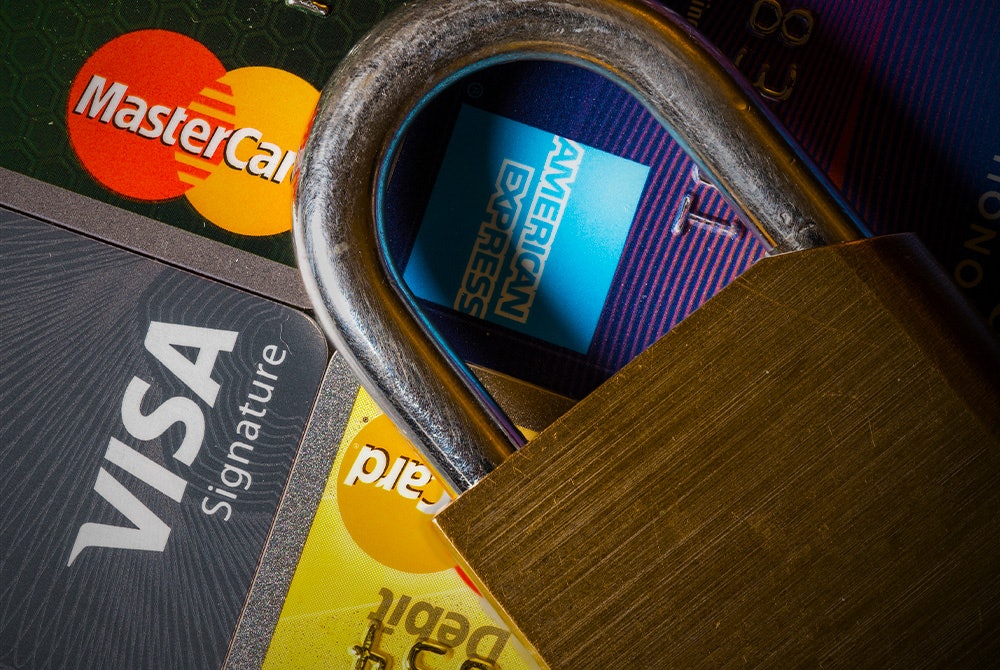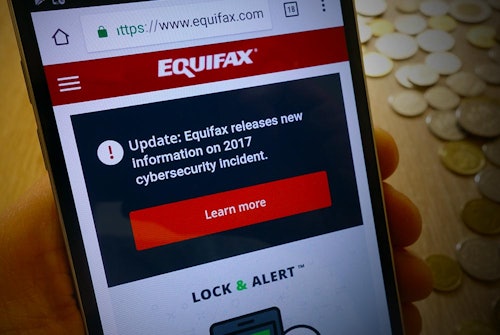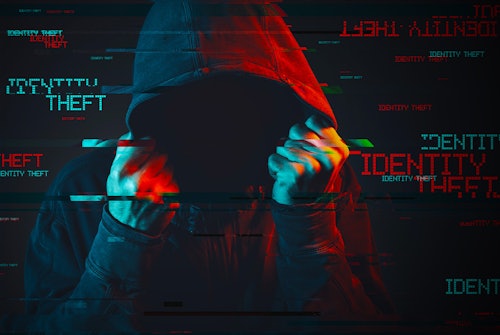Equifax In Depth
- Equifax’s Products and Services: Consumer
- Equifax’s Products and Services: Commercial
- Equifax Fraud Alerts
- Equifax Credit Freezes
Equifax is a global data, analytics, and technology company headquartered in Atlanta, Georgia. In 1899, the company was formed by a group of tailors from Great Britain who joined forces to share information about consumers who didn’t pay their debts. It became a publicly held corporation in 1965. Today, the company operates or has investments in 24 countries throughout North America, Central and South America, Europe, and the Asia Pacific region.
Equifax is most well-known as one of the top three credit reporting agencies (along with Experian and TransUnion). Equifax uses items from consumers’ credit accounts to create credit reports, which lenders and creditors then use to determine whether or not to extend a loan or credit.
Equifax’s Products and Services: Consumer
Equifax offers two tiers of credit monitoring and identity protection services geared toward consumers: Value and Premium. These services range from basic credit report access to more detailed and intensive credit monitoring and identity theft prevention tools.
Value Products
Value products are designed for cost-conscious consumers who need regular or occasional access to their credit score and who might need to keep tabs on their accounts.
Pricing as of September 30, 2021.
| Value Product | Cost Per Month | Features |
| Lock and Alert | Free | Easily lock and unlock your Equifax credit report. |
| Equifax Core Credit | Free | Receive your credit score and report every month. |
| Equifax Credit Monitor | $4.95 | Access your VantageScore credit score daily and see trends over time. Set up alerts for score changes and lock your credit report as needed. |
| Equifax Complete | $9.95 | Access your credit report daily and get alerts for credit score changes. $500,000 in identity theft insurance and get a dedicated identity theft resolution specialist to help you recover from identity theft. |
Premium Products
If you’re looking to gain access to credit reports from all three bureaus at once or need some more robust identity theft protection tools, Equifax’s Premium line could be the right choice. You can choose from the following options.
Pricing as of September 30, 2021.
| Premium Product | Cost Per Month | Features |
| Equifax Complete Premier | $19.95 |
|
| Score Watch | $14.95 |
|
| Equifax Complete Family Plan | $19.95 |
|
Equifax’s Products and Services: Commercial
Like its credit bureau counterparts, Equifax also delivers services, especially for businesses in a wide range of industries. As a cloud-native global data and analytics technology company, Equifax aims to help companies create data-driven solutions that drive revenue and deliver better customer experiences.
Equifax’s extensive menu of commercial products and services include the following:
- Customer acquisition
- Credit data reports for both commercial and consumer customers
- Credit monitoring and identity protection for businesses
- Solutions for growing existing business
- Management of regulatory compliance
- Management of workforce from talent acquisition through the entire employment cycle
- Mitigation of risk
- Fraud prevention
- Debt recovery services
- Third-party verification services to ensure the information provided during the course of business is accurate
Equifax Fraud Alerts
Equifax allows you to place a fraud alert on your account if you have reason to suspect or anticipate fraudulent activity. That means lenders and creditors will need to take additional steps to verify your identity if you (or someone else) attempt to request credit. Generally, the lender or creditor will try to contact you personally to confirm that you’ve made the credit request.
Equifax offers two types of fraud alerts, both of which are free: initial and extended. An initial fraud alert is free and lasts for one year, while an extended fraud alert lasts for seven years and removes you from credit card and insurance offers for five years. To qualify for an extended alert, you’ll need to provide an FTC Identity Theft report or police report.
Equifax Credit Freezes
Equifax also offers you the ability to freeze your credit for free, which will prevent lenders and creditors from accessing your Equifax credit report when someone attempts to open credit in your name. The only catch is that you will not be able to apply for credit while the credit freeze is in place. You can temporarily lift the freeze if you want to apply for credit and then re-freeze your credit report.
If you want to freeze credit reports from the other two bureaus, you must contact Experian and TransUnion directly.
Unlike the Lock and Alert option that Equifax offers for free, credit freezes are federally regulated. That means you’ll have to apply for and wait for the freeze to reflect on your account, which can take up to 24 hours.
Scams Impacting Equifax
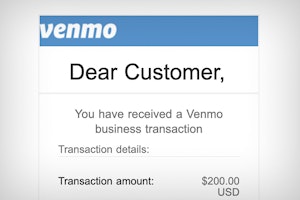
Selling on Facebook Marketplace? Beware of Fake Venmo Emails
Scammers are sending fake Venmo emails to Facebook Marketplace sellers in an attempt to steal login information and money.
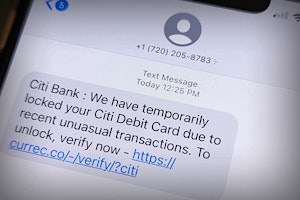
Citibank Text Message Scam: Locked Debit Card Alert Is Fake
If you've received a locked debit card text message from Citibank, it's likely a scam. Don't click on the link and delete the text message.
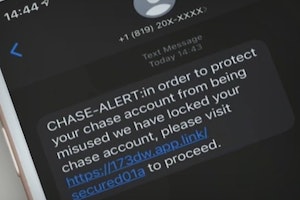
Real Chase Fraud Text Alert or Scam Message?
If you receive a text message from Chase Bank, don't click on any links or call the phone number listed—it could be a scam designed to steal your information and money.
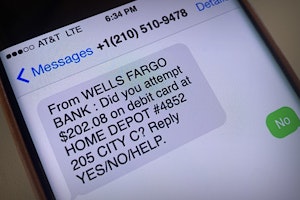
Wells Fargo Text Alert - Is It A Scam?
Dangerous text message scams are targeting Wells Fargo customers. These text message alerts for Zelle transactions or purchases with retailers are scams.

Capital One Fraud Text Alert Scams: Spotting a Fraud
If you received a suspicious Capital One fraud text alert, it may be a scam. Learn how to spot the fake to protect your identity and funds.
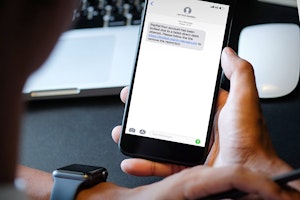
PayPal Text Scam: Identify a Fake & Protect Your Money
Several versions of fake PayPal text messages are being sent to people worldwide. There are a few easy ways to tell which messages are scams and simple things you can do to protect yourself.
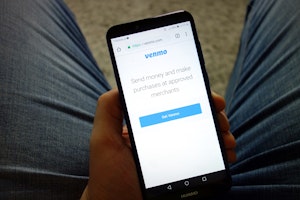
Venmo Text Scam: Don't Fall For These Fake Messages
If you received a text from Venmo with a link to verify a payment or deposit, or are asked to complete a survey in exchange for money, it may be a scam.
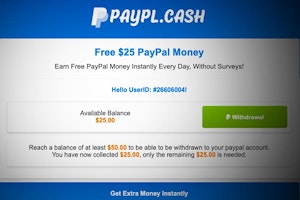
Free PayPal Money Scams: Don't Believe the Hype, It's a Scam
Multiple free money scams that easily fall under the “too good to be true” scams that target loyal PayPal users with promises of free PayPal money.

How to Avoid PayPal Shipping Label Scams: Top Tips
PayPal is a convenient way to pay for online purchases and has a reputation for safety and security. But scammers still find a way to use PayPal to help them steal products.

PayPal Shipping Scams: Tips to Protect Your Money and Items
Scammers take advantage of PayPal's buyer protection program to scam sellers out of their money and items for sale.
Guides To Protect Against Banking & Finance Scams
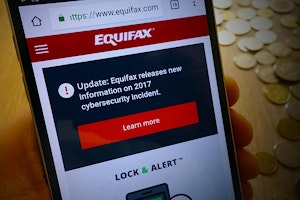
5 Things to Do After a Data Breach to Protect Yourself
When a company is the victim of a data breach, it's completely out of your control. However, there are steps you can take afterward to protect your information and money.

How to Recover from Identity Theft: 7 Steps to Take
It's estimated that $13 billion is lost each year to identity thieves. Knowing how to recover is important to minimize your losses and get your life back on track.

How to Report Scam Calls, Websites, Emails, and More
Getting scammed isn't fun, and there's often little you can do to recoup your losses, but there are steps you should take to protect yourself.

5 Reasons Why You Need to Check Your Credit Score Regularly
You may not pay much attention to your credit score until you need to apply for credit, but we have important reasons why your credit shouldn't be out of sight, out of mind.
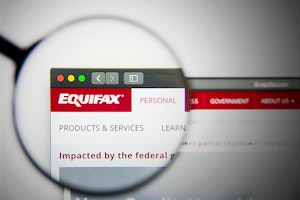
How to Place an Equifax Fraud Alert and Protect Your Credit
Placing a fraud alert with Equifax can be done in a matter of minutes and can keep you safe from identity theft.
News About Banking & Finance Scams

Banks May Refund More Zelle Scam Victims in 2023
Zelle scams have reached a serious volume. New reports suggest that banks are looking at new refund protections for customers in 2023.

RobinHood Customers Are About to Be Phished—Here's What it Will Look Like (Examples)
Robinhood's latest data breach of 5 million email addresses means that Robinhood users are about to encounter a wave of phishing attempts.
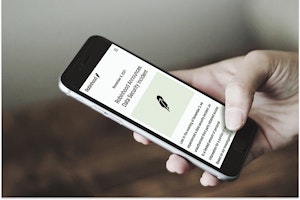
Robinhood Users: Look Out for Scams Following Data Breach
Robinhood recently suffered a massive data breach, exposing the information of millions of users.

Urgent CDC Warning: Eye Drops Linked to 3 Deaths, Loss of Vision
The CDC is warning eye drops users of a rare bacterial infection from 2 brands of eye drops. The infection is resistant to antibiotics and has resulted in the loss of vision, loss of eyeballs and the death of 3 patients.

Optus Data Breach - One of the Worst Cyberattacks in Australia
Hackers have gained access to 9.8 million customer records from Optus in Australia, exposing personal information such as driver licence, medicare and passport details.
